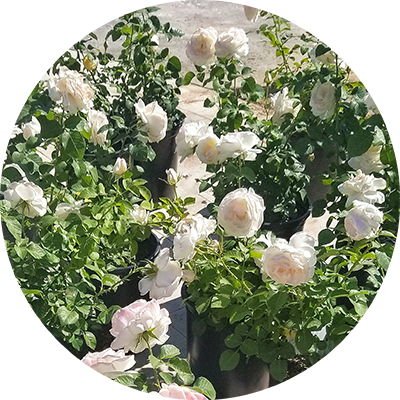about us
The Queen Creek Botanical Gardens inspires and educates about elegant edible plants, showing the future of sustainable food production in landscaping. As a unique component of the greater Pecan Lake development, this 3+acre Botanical Garden features the only fully-operational industrial-age water mill in the American Southwest as well as themed demonstration gardens including English Formal, Japanese, Lakeside, Edible Flower, Mill Creek Medicinal, and Vertical Gardens. The Gardens provide a place to escape, enjoy the beauty of nature, and learn more about food security through community resources. Fruits, vegetables and other food produced at the Gardens will be available for purchase at the Saturday Farm Stand, or through a weekly produce-subscription service.

Unique among botanical gardens, all of the plants in the gardens are edible -fruits, vegetables, herbs or edible flowers have been individually selected for their aesthetic style and elegance.
Enjoy this, and many other amenities at the greater Pecan Lake Entertainment Center
support the gardensour mission
Our mission is to exhibit excellence in the world-class artistry, innovation and practice of elegant, edible landscaping to educate and inspire sustainable applications, including hyper-local food production, at home and in communities worldwide.
To accomplish our mission, we:
- Model hyper-local, sustainable food production practices
- Develop educational programs and services that teach regenerative sustainability
- Exhibit plants, designs and artistry that inspire others
- Collaborate with nature, people and organizations
- Show enthusiasm for what we do and who we serve
- Cultivate innovation and research into new and proven methodologies
leadership

Lonnie McCleve, Co-Founder
Lonnie McCleve is founding director of the Gardens. A land developer by trade, he is passionate about finding ways to provide needed amenities to the public and supporting the Queen Creek community. As a cancer survivor, Lonnie credits his recovery to a change in his diet to eating clean, plant-based foods that were as close to their natural state as possible. Realizing how essential this is for the local population’s overall health and well-being, Lonnie began to look for ways to teach and increase hyper-local food production while providing a world-class botanical garden to the town and surrounding communities.

Justin Rohner Chief Designer and Co-Founder
Justin Rohner, is co-founder and Chief Designer of the Gardens. He is also sometimes referred to as the CEO (Chief Educating Officer), responsible for all garden tours, education, and farm to table harvesting here at the Gardens. As the founder of Agriscaping, Utopian Harvest, and The Ultimate Garden Show with Rosie on the House Saturdays at 8:00am on 92.3FM in Arizona, Justin has helped thousands of people around the world grow their own healthy, fresh foods at home for more than 25 years. He is a passionate educator, artist, and entrepreneur with an engineering mind. His professional enthusiasm centers around improving self-reliance, sustainable food, and family, and is an award winning entrepreneur for his work improving local food access & sustainability. Justin grew up right here in Arizona around the family dairy farm in Tempe, AZ and began his career in landscaping at the ripe age of 9, at a small 9-hole, executive golf-course in Mesa. He earned interdisciplinary degrees in Engineering, Business, and German, from Arizona State University and holds a Masters from the University of Santa Monica.
